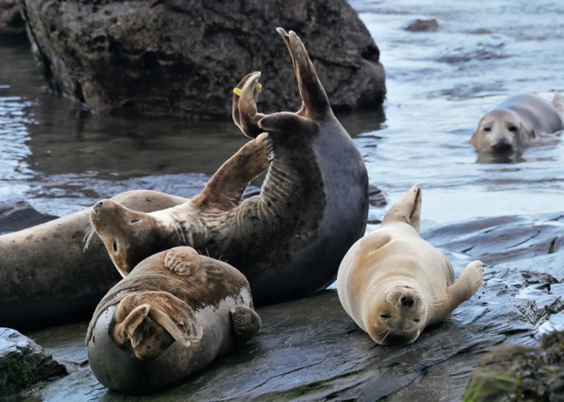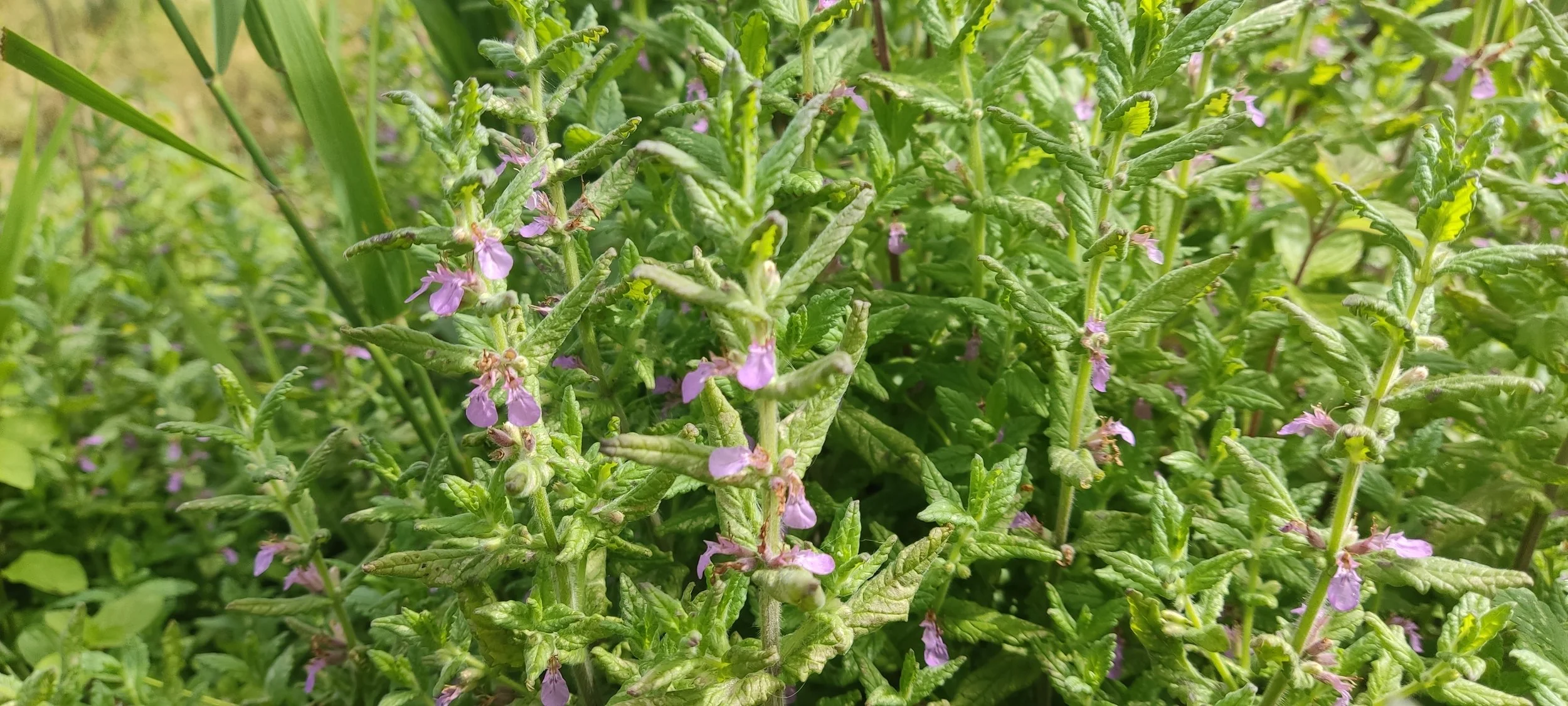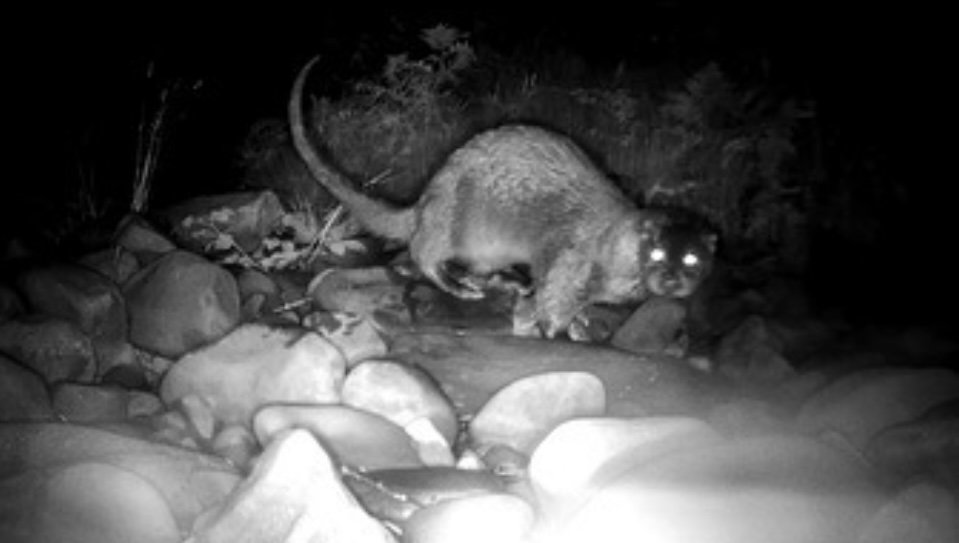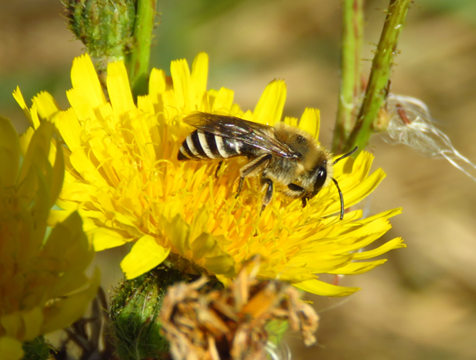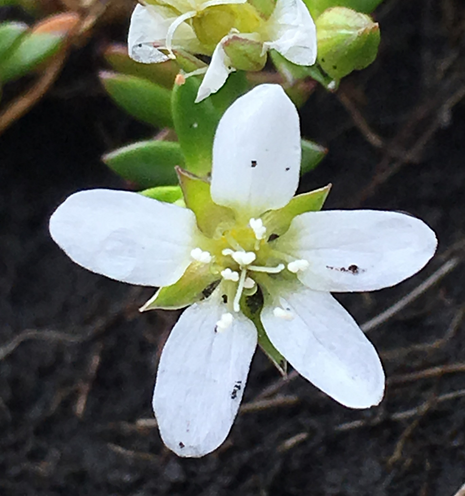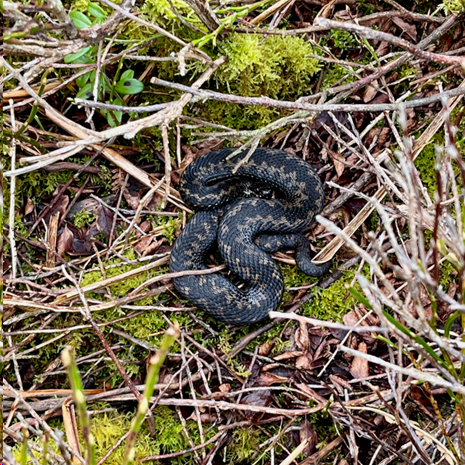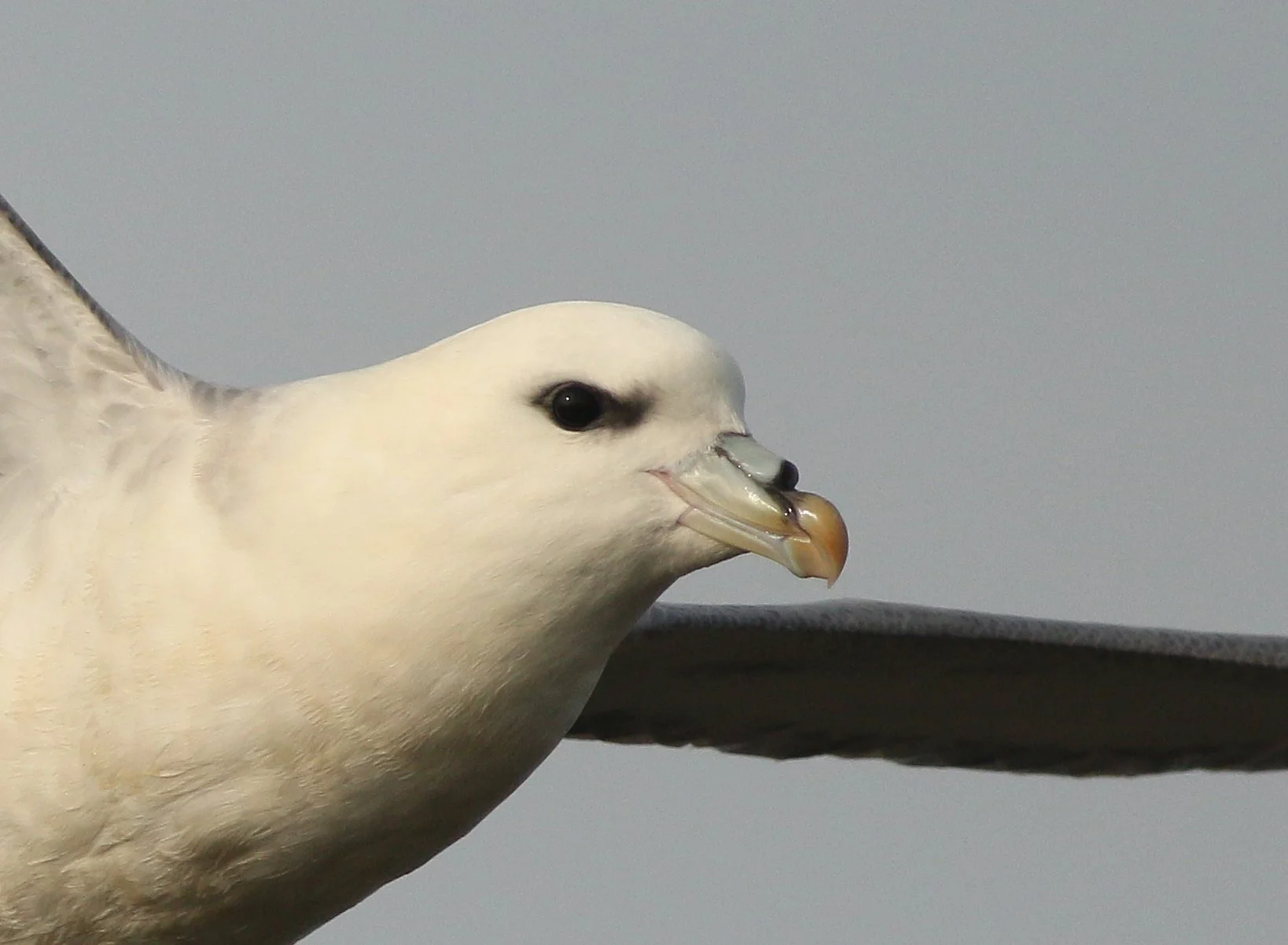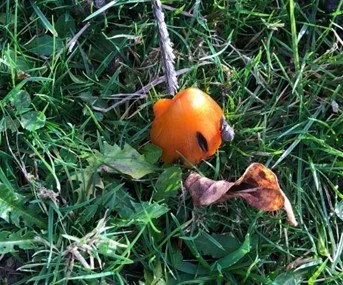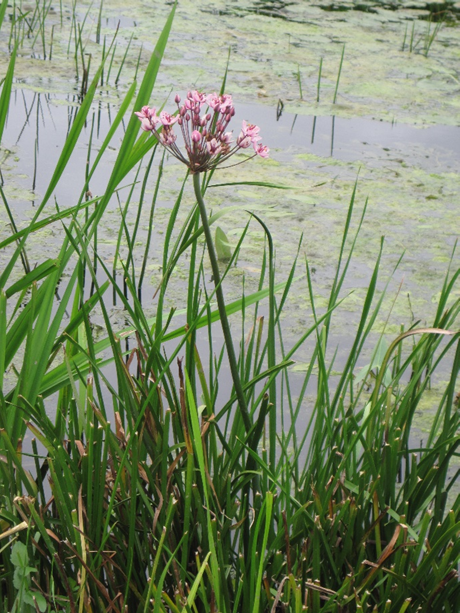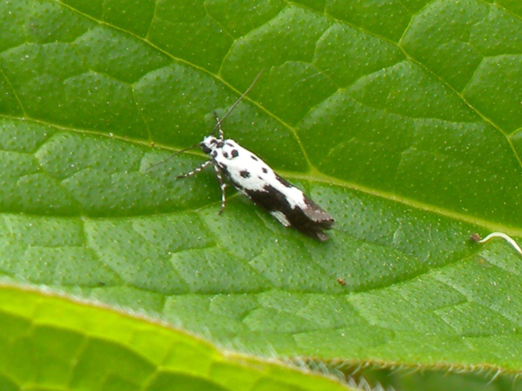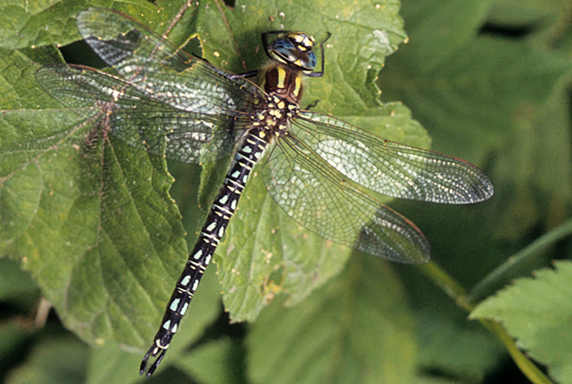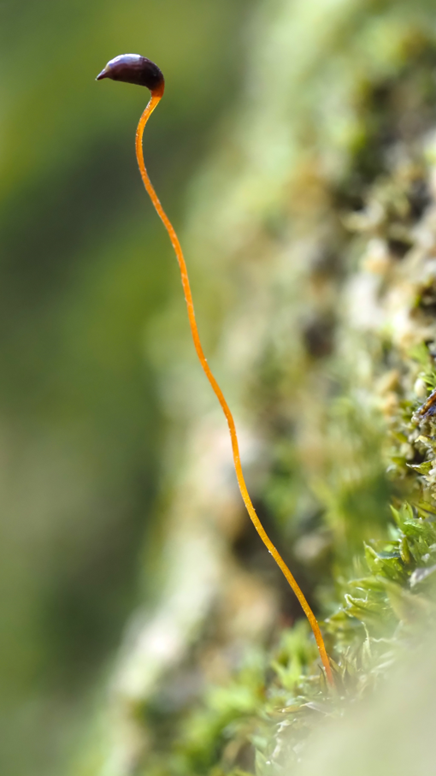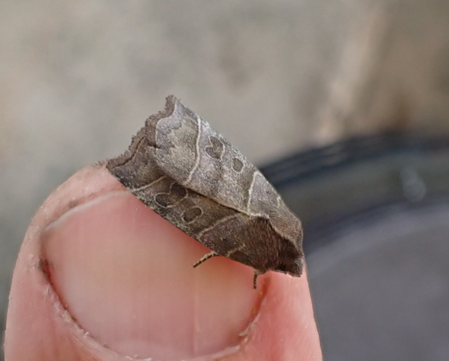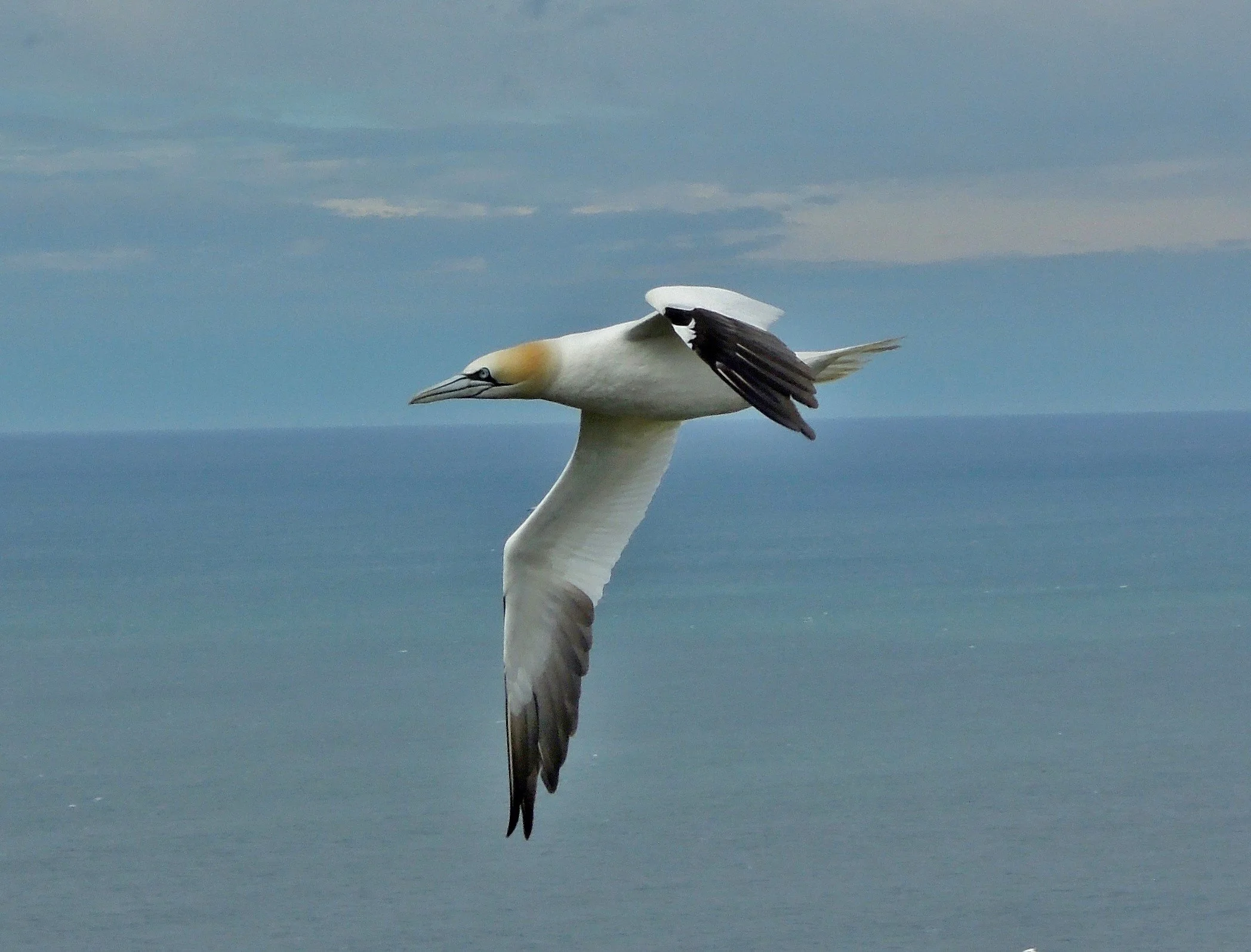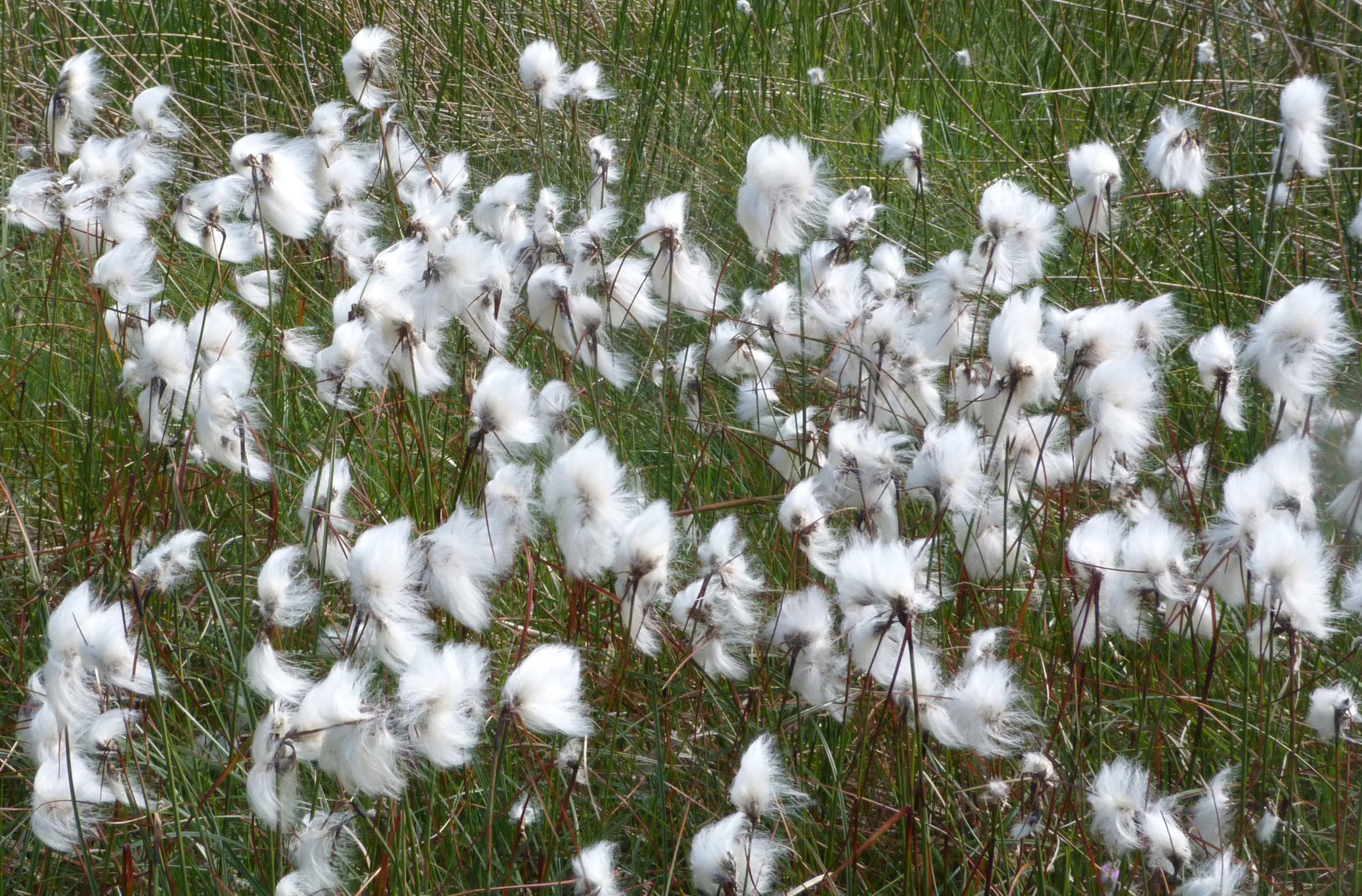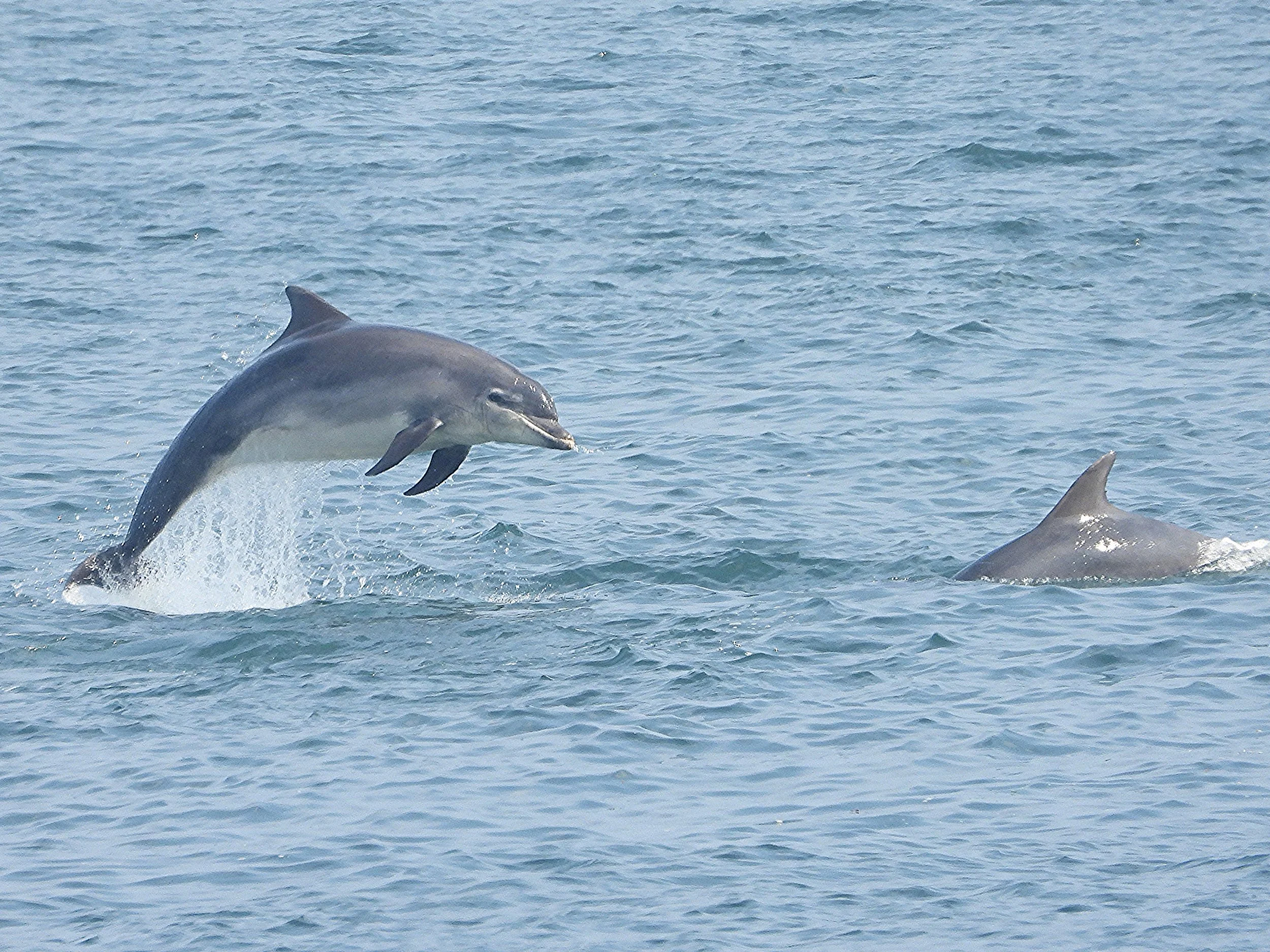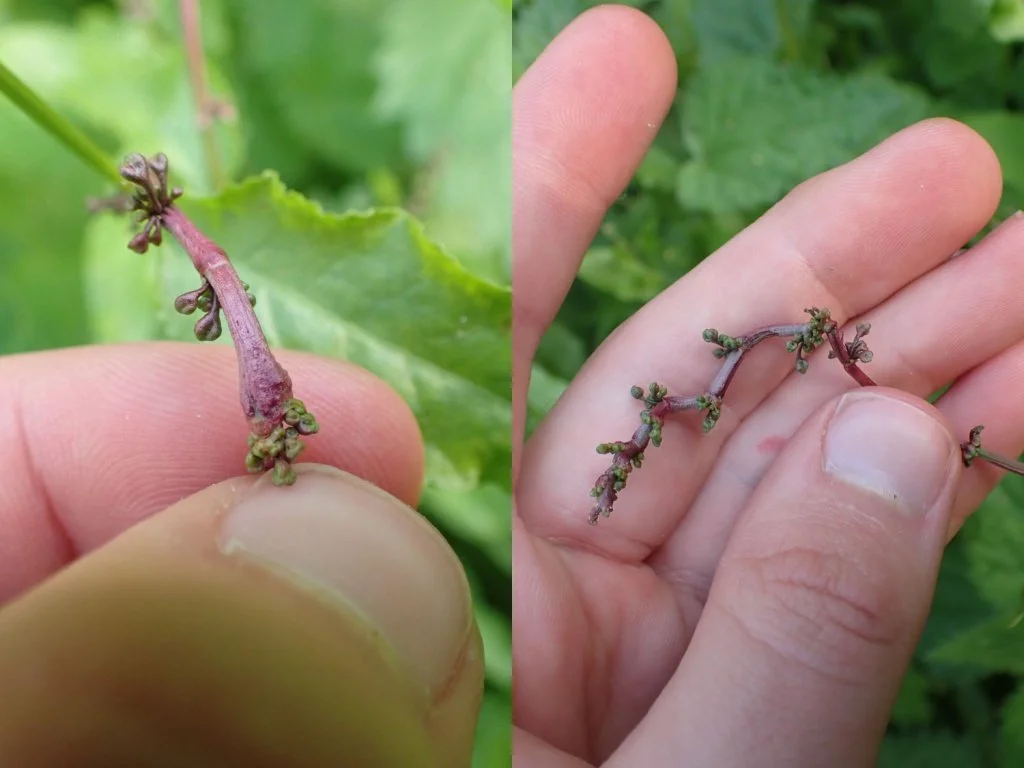#56 Grey Seal by Matt Barnes
Matt’s chosen species is the Grey Seal Halichoerus grypus.
Matt is the founder of Yorkshire Seal Group and has spent over 15 years working in conservation roles with a variety of environmental and animal welfare NGOs. Matt co manages a close-knit team of 40 seal stewards, researchers and educators on the Yorkshire coast to help protect our iconic seals, educate coastal visitors and promote a peaceful coexistence between the two.
Read More
#55 Water Germander by Jono Leadley
Jono’s chosen species is Water Germander Teucrium scordium - currently extinct in Yorkshire…but about to make a return?
Jonathan ‘Jono’ Leadley is North Regional Manager at Yorkshire Wildlife Trust where he has been responsible for the Trust’s operations across North Yorkshire since 2017.
Read More
#54 Otter by James Macarthur
James’ chosen species is one of our iconic mammals, the Otter Lutra lutra.
James Macarthur is a PhD student at UHI Inverness (University of the Highlands and Islands) with a particular interest in using molecular techniques for biodiversity monitoring and conservation. He recently completed a research masters at the University of Hull where his research investigated how Eurasian otter Lutra lutra diets varied in relation to the available fish community along the river Hull.
Read More
#53 Sea Aster Mining Bee by Phill Robinson
Phill’s chosen species is the rare, solitary Sea Aster Mining Bee Colletes halophilus.
Phill is currently a Senior Aquarist at The Deep Aquarium in Hull where he takes care of the Reptiles, terrestrial Invertebrates, and native aquatic species. Alongside this, he is a part of the BIAZA Field Conservation Committee, part of the steering committee for the BIAZA Terrestrial Invertebrate Working Group, BIAZA representative and surveyor for the Tansy Beetle Action Group, and is am heavily involved with The Deeps new Weeds for Wildlife campaign, in collaboration with the University of Hull, Hull City Council, and The Wykeland Group Ltd
Read More
#52 Yorkshire Sandwort by Kevin Walker
Kevin’s chosen species is one unique to Yorkshire - Yorkshire Sandwort Arenaria norvegica subsp. anglica!
Dr Kevin Walker is Head of Science at the Botanical Society of Britain and Ireland, formerly at the UK Centre for Ecology and Hydrology, Monks Wood. He is a botanist with an interest in plant ecology, rare species, invasive species, montane plants, and floristic change.
Read More
#51 Adder by John Hartshorn
John’s chosen species is one of our native reptiles, the Adder Vipera berus.
John is a Fellow of the Royal Geographical Society and a Chartered Geographer. With a rural upbringing, his love of nature has led him to undertake a range of conservation volunteering activities including biodiversity surveys for his local AONB and the co-founding of the Yorkshire Rewilding Network of which he is a trustee and committee member.
Read More
#50 Cartilage Lichens by Peter Cook
Peter’s chosen species are the Cartilage lichens.
Peter has had a life-long interest in the natural world and is now Recorder Emeritus in the BSBI. He has held the offices of Divisional Secretary for the YNU and Conservation Projects Officer, Chairman, Treasurer and Executive Committee member for the South Holderness Countryside Society. After retiring from a professional career in veterinary medical research and scientific, technical, and medical writing, Peter worked freelance conducting botanical surveys for ecology consultancies and also surveyed and evaluated candidate Local Wildlife Sites for the East Riding of Yorkshire Council for 14 years.
Read More
#49 Fulmar by Mark Pearson
Mark’s chosen species is the enigmatic Fulmar Fulmarus glacialis.
Mark is an obsessive Yorkshire coast birder and naturalist whose roles include wildlife guide, ecologist, speaker, writer and educator.
Read More
#48 Blackening Waxcap by Richard Farrah
Richard’s chosen species is the eye-catching Blackening Waxcap Hygrocybe conica.
Richard works as a Ranger for the National Trust at Nostell in West Yorkshire. Over the 7 years being in the job, Richard’s role has developed into carrying out more wildlife surveys on site, creating new habitat opportunities based on survey evidence and old archive maps to use both the past and present to shape habitat creation at Nostell going forward.
Read More
#47 Thistle Broomrape by Seebra Young
Seebra’s chosen species is Thistle Broomrape Orobanche reticulata, an icon of Yorkshire this parasitic plant is also known as Yorkshire Broomrape.
Seebra works as an Ecological Data Officer at North and East Yorkshire Ecological Data Centre and has a special interest in botany.
Read More
#46 Flowering Rush by Ray Goulder
Ray’s chosen species is the Flowering Rush Butomus umbellatus, one of our distinctive wetland and aquatic plants.
Ray taught freshwater ecology at Hull University from 1972 to 2009, whilst undertaking research in aquatic microbial ecology, and later developed his interest in learning and teaching―especially field work. Since retiring he has partaken in extensive voluntary work for the Canal & River Trust.
Read More
#45 Comfrey Moth by Jill Warwick
Jill’s chosen species is Ethmia quadrillella, colloquially known as the Comfrey Moth.
Jill has nurtured an interest in natural history all her life, has now been an experienced bird ringer and accomplished moth recorder for over 30 years.
Read More
#44 Hairy Hawker by Alistair McLean
Alistair’s chosen species is the Hairy Hawker Brachytron pratense.
Alistair McLean is the curator of natural science at Sheffield Museums Trust and the dragonfly recorder for South-West Yorkshire and the Sorby Natural History Society. He has been fascinated by dragonflies throughout his career.
Read More
#43 Flamingo Moss by Steven Heathcote
Steven’s chosen species is Flamingo Moss, Tortula cernua.
Steven is a Senior Ecologist at JBA Consulting based in Doncaster and a keen botanist and bryologist. He completed a PhD at Oxford University on the ecological adaptations of bromeliads in cloud forests of the Peruvian Andes and has worked as an ecological consultant since 2011.
Read More
#42 Double Kidney by Charles Fletcher
Charles’ chosen species is the Double Kidney Ipimorpha retusa.
Charles has been Yorkshire’s county macro recorder for the last 15 years, having had a lifelong interest in natural history since he was a child. Moth recording has become increasingly popular since he took on the role, and he is currently dealing with almost a quarter of a million records per year.
Read More
#41 Gannet by Geoff Dobbs
Geoff’s chosen species is our largest seabird, the Gannet Morus bassanus.
Geoff Dobbs, is a birder an author from Yorkshire. Geoff began birdwatching in the early 1960s and since thn has been Junior Recorder for the Hull Scientific and Field Naturalists Club, Chair of the Hull Valley Wildlife Group, Chair of the Bird Section of the Yorkshire Naturalists’ Union, Editor of the Yorkshire Bird Report 1997-2005 and 2014 to 2019, and more!
Read More
#40 Tansy Beetle by Geoff Oxford
Geoff’s chosen species is an iconic insect of the York area, the Tansy Beetle Chrysolina graminis.
Geoff Oxford (geoff.oxford@york.ac.uk) is currently an Honorary Fellow in the Department of Biology, University of York, where he taught genetics and evolution for nearly 40 years. Although his main interest is in spiders (you can read his previous blog here), he became fascinated by the Tansy beetle some 30 years ago when his wife, Roma, started to breed them … and began to ask questions.
Read More
#39 Common Cottongrass by Wendy English
Wendy’s chosen species is an iconic plant of moorland, heath, and wetland: Common Cottongrass Eriophorum angustifolium.
Wendy is an enthusiastic amateur botanist, interested in habitats and their conservation. She is the botany recorder for Whitby Naturalists’ Club and has been a conservation volunteer for Fylingdales Moor in the North York Moors National Park (NYMNP) since the scheme began in 2007.
Read More
#38 Bottlenose Dolphin by Stuart Baines
Stuart’s chosen species is the Bottlenose Dolphin Tursiops truncatus.
Stuart Baines was born and bred in Scarborough. He has always had an interest in Yorkshire’s coastal wildlife and has over the last thirteen years developed a strong passion for the study and conservation of marine mammals that visit and live in the seas of his hometown. Stuart is a regional coordinator representing the national cetacean charity Sea Watch.
Read More
#37 Microbotryum parlatorei by Sam Buckton
Sam’s chosen species is the elusive dock smut fungus Microbotryum parlatorei.
Sam Buckton is currently Plant Gall Recorder for the Yorkshire Naturalists’ Union and Vice-Chair of the British Plant Gall Society. He is currently a Research Assistant with the University of York’s FixOurFood programme, a project investigating how Yorkshire could transform towards a regenerative food system, and started a PhD with the programme in autumn 2022.
Read More

